The Pope and the Sin of Environmental Degradation
Air Date: Week of July 18, 2014
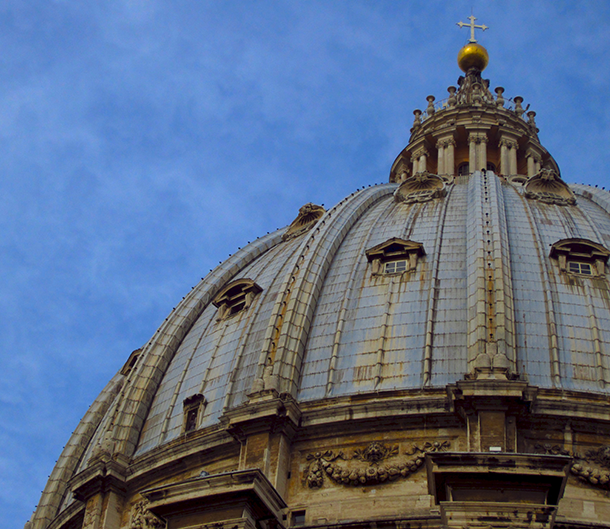
The Vatican is a national state, officially known as “The Holy See.” It has representation in the United Nations. (Photo: Doug88888; Creative Commons Flickr)
Pope Francis has called environmental exploitation the sin of our time. He is working on an encyclical about humanity’s relationship with nature. Christiana Peppard, Assistant Professor of Theology, Science and Ethics at Fordham University and author of the book Just Water, discusses the Pope’s call to “care for God’s creation” with host Steve Curwood.
Transcript
CURWOOD: From the Jennifer and Ted Stanley Studios in Boston and PRI, this is Living on Earth. I’m Steve Curwood. Pope Francis has called on the 1.2 billion Roman Catholics he leads and the rest of humanity to quote, “protect creation.” Speaking to students in Southern Italy, he called environmental exploitation the sin of our time.
[SFX: POPE: “Questo è il peccato nostro: di sfruttare la terra e non lasciare che lei ci dia quello che ha dentro, con il nostro aiuto della coltivazione.”]
TRANSLATION: This is our sin: exploiting the land and not allowing it to give us what it has within it, with our help through cultivation.
CURWOOD: The Pope is also working on an encyclical to lay out his doctrine about how humanity should relate to nature and our environment. To put all this in perspective, we turn to Christiana Peppard. She’s Assistant Professor of Theology, Science and Ethics at Fordham University in New York and author of the book Just Water. Welcome to Living on Earth.
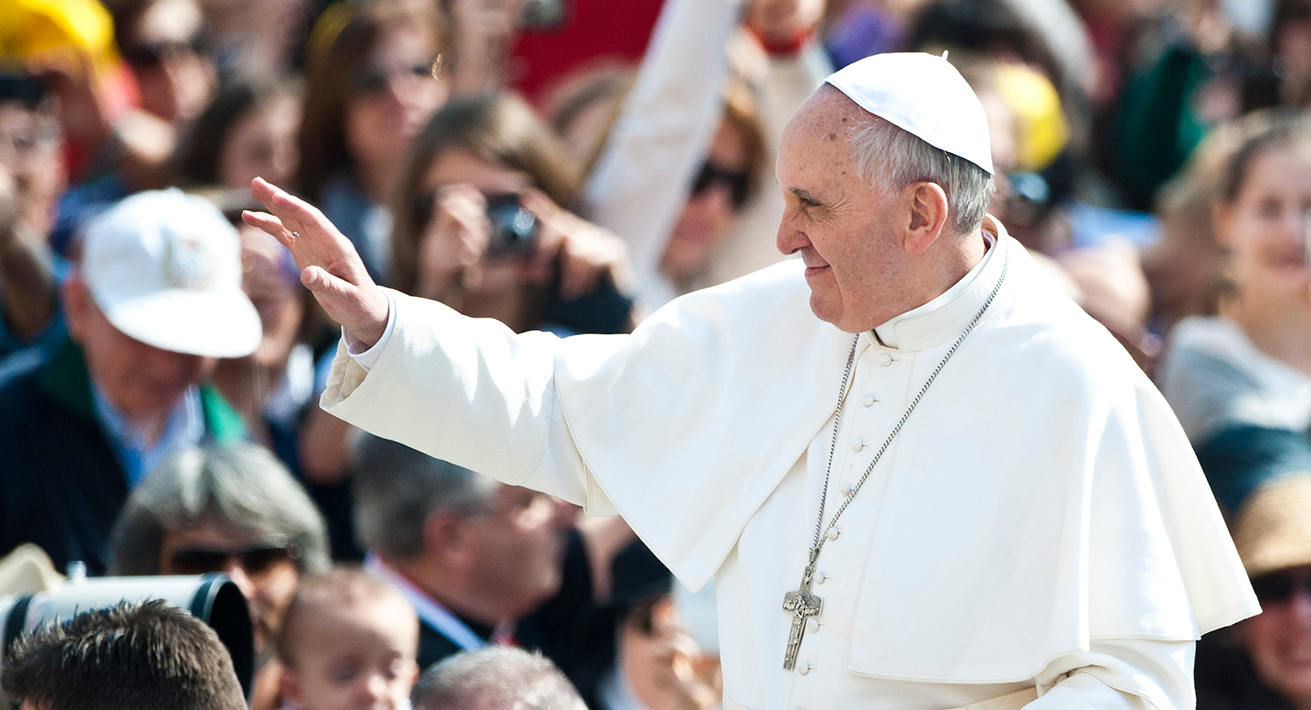
Pope Francis is redefining the idea of sin to fit today’s global economy and environment. (Photo: © Mazur/catholicnews.org.uk)
PEPPARD: Thank you, Steve. It’s a pleasure to be here.
CURWOOD: First tell me what’s an encyclical?
PEPPARD: An encyclical is fancy Catholic talk for an authoritative document from the highest levels of the Vatican, signed with the signature and seal of the Pope. It is one of the most authoritative documents in all of Catholic tradition. It is of course written first in Latin, but then it has to be translated into all of these other languages.
CURWOOD: I see. So what’s Latin for nuclear power or fracking, for example?
PEPPARD: [LAUGHS] That is a great question. A lot of times documents will say, ‘In the present day there are problems of extraction of valuable natural resources, including the new technology of , and then in quotation marks “fracking.”’
CURWOOD: [LAUGHS] OK.
PEPPARD: The Romans certainly had encounters with the natural world, but their relationship to it was really different, and I think what’s different now is that we are in significant ways in control.
CURWOOD: How fair is it to say an encyclical is a really big deal?
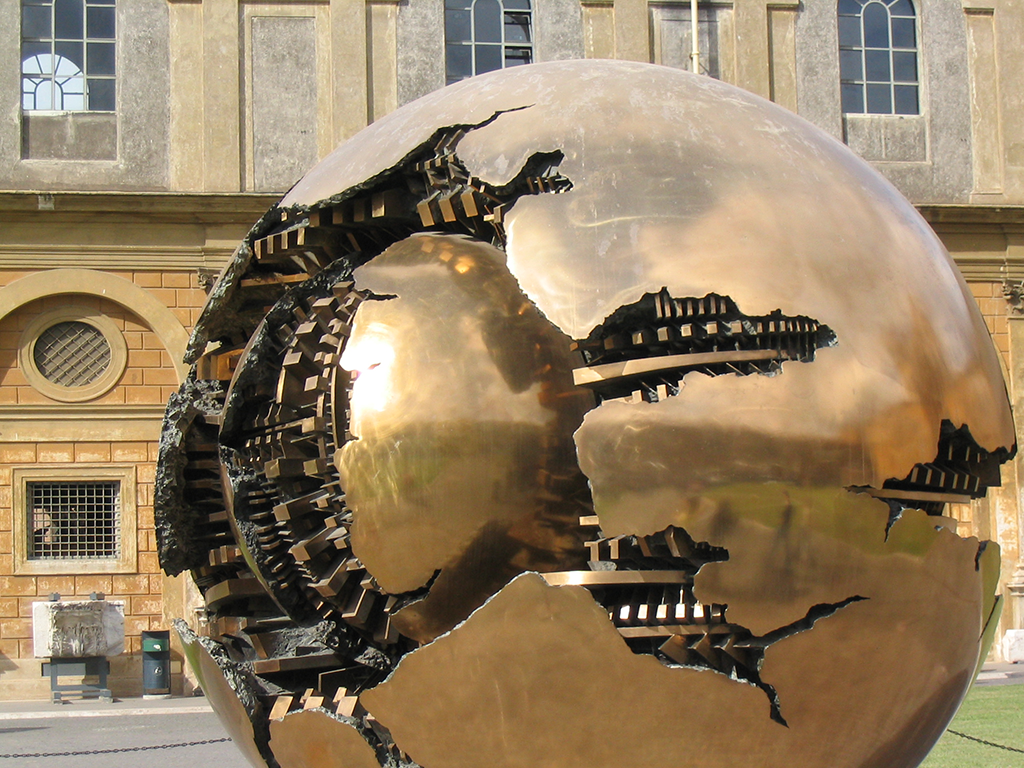
In the Vatican Museum, there is a sculpture called Sfera con Sfera, or “Sphere within a Sphere” by Arnaldo Pomodoro. It is said to symbolize the fragility and complexity of the Earth. (Photo: Nick Kocharhook; Creative Commons Flickr)
PEPPARD: An encyclical is a huge deal, at least for the Vatican hierarchy, and in theory, should also be a pretty huge deal for Catholics in the pews. Though frankly, encyclicals are not the most gripping reading that you’ve ever accessed. They tend to be written from a perspective that is meant to illuminate major issues, and so they don’t always delve into the particularities that bring narratives and documents to life. The way that a lot of Catholics, at least in the US, have access to the Catholic Church’s teachings is primarily through their pastors on Sunday, and even when an encyclical is released, the priest in question may or may not have opted to give a sermon about it.
CURWOOD: How frequently do Popes issue encyclicals?
PEPPARD: That is entirely up to the Pope. Benedict issued several; he issued Caritas in Veritate which means “Charity in Truth.” Like many encyclicals, it focused on theology and quoted Nietzsche, Augustine, Scripture as well as some various UN and transnational government sources, but he also released a number of encyclicals that had to do with topics like Christian Hope. So it really depends on the issues that he thinks are important to explore with regard to people who are living in the world today and trying to make sense of how to be faithful in a Catholic sense, as well as how to be good citizens of the world.
CURWOOD: Why now? Why is Pope Francis saying that he's going to issue an encyclical about the environment?
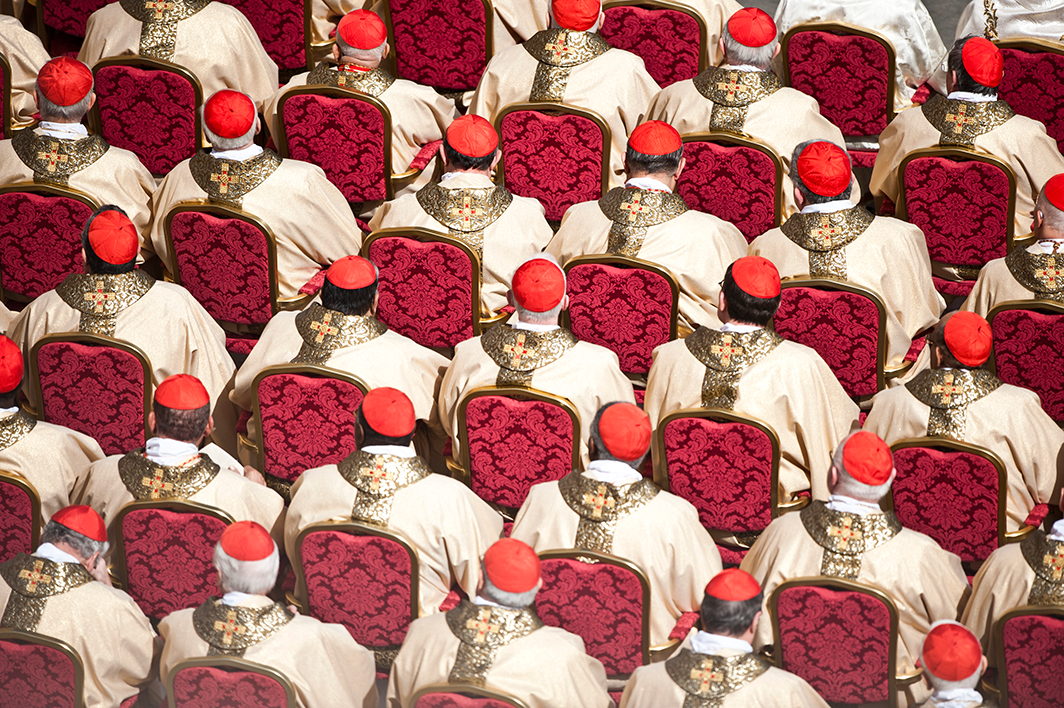
Says Professor Peppard, an encyclical is “one of the most authoritative documents in all of Catholic tradition,” and is a letter addressed to churches and people worldwide. (Photo: © Mazur/catholicnews.org.uk)
PEPPARD: Well, one of the things that we’ve really seen with this papacy is that Francis is trying as hard as he can under the circumstances of his elevated post to remain pretty close to the ground. So he was known back when he was in Argentina for spending a pretty good amount of time in various impoverished communities. He’s known now for, you know, driving a relatively humble Pope-mobile and not wearing fancy Prada shoes, and living in not too fancy quarters in the Vatican.
I think that his experience in South America, seeing the ways in which extractive industries and environmental degradation often have negative impacts for people living in situations of poverty, has informed a lot of his comments on the economy and on ecology more broadly. But I also think he understands his role as a kind of moral compass. There has not yet been an encyclical explicitly about the environment. There have been encyclicals that deal with the environment, sort of at this nexus of social justice, environmental degradation and economic development. And environmental degradation really is one of the signs of the times that no moral leader, or in this case theological faith leader, can afford to ignore.
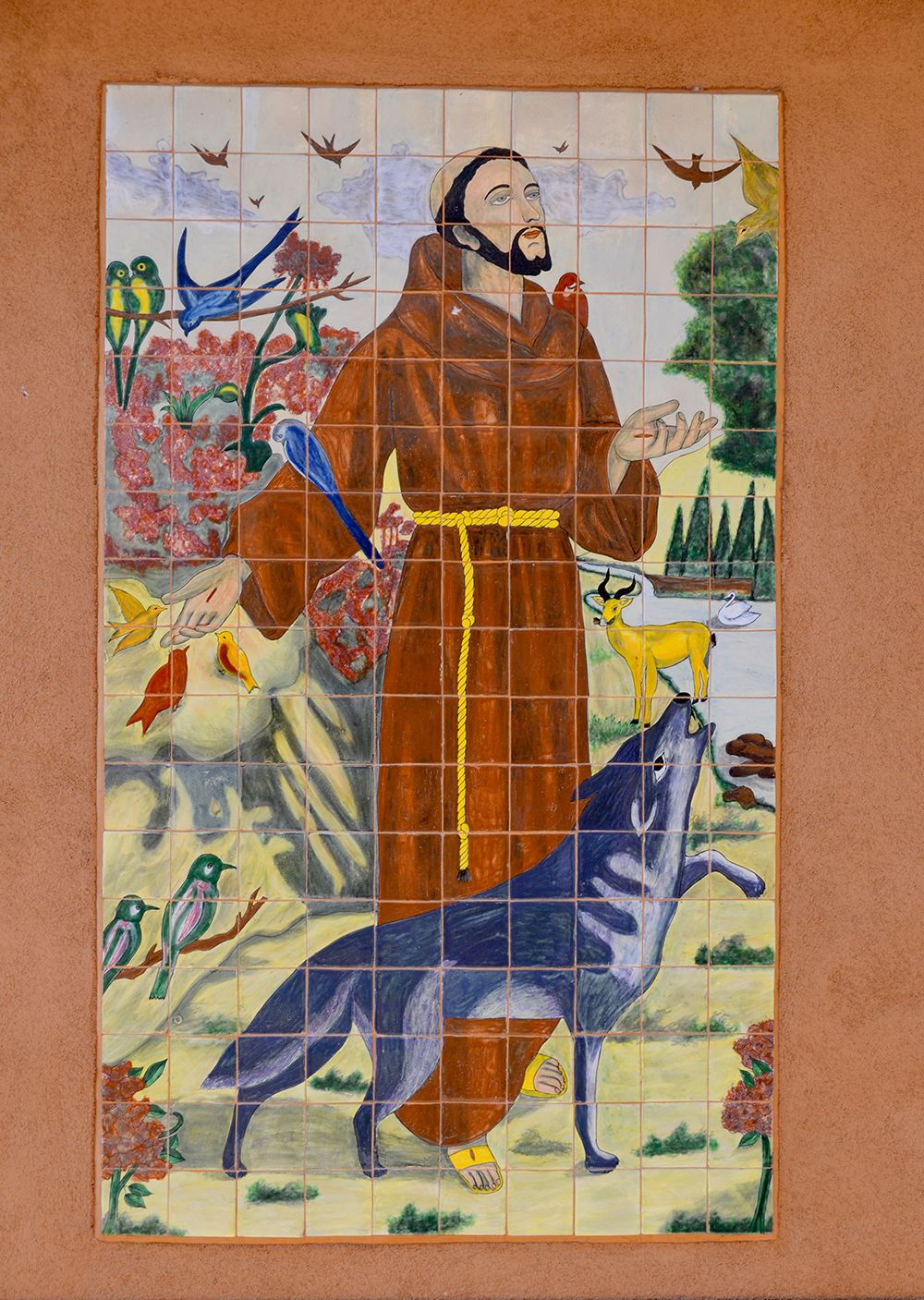
Pope Francis takes his name from St. Francis of Assisi, patron saint of animals and the environment. (Photo: Bigstockphoto)
CURWOOD: The sin of our time sounds like a pretty strong statement. What do you think Pope Francis means by that?
PEPPARD: It is a really strong statement. I mean for a Pope to say that deforestation and ecological destruction are the sins of our times is really throwing down a gauntlet. It prompts Christians, especially in the U.S., to think about how we understand sin and how we understand responsibility. So much of Western moral tradition, whether theological or philosophical, has really been based upon a very individualistic paradigm wherein I commit some kind of action, usually intentionally, and it's seen as wrong or sinful. In some sense we can ascribe a clear cause, a clear effect—there’s someone who can repent for it, someone who is affected; there might be some mode of remediation. What's really interesting about applying the language of sin to environmental destruction is that there is not necessarily one person who is the sole cause of things. Causality is much more complex. It has to do with patterns of global economy, of governance, of incentive, of poverty, of the need for arable land and subsistence. And how we think about sin and in that context is complicated, and I appreciate that he's trying to complicate the picture.
CURWOOD: You appreciate that he’s trying to complicate the picture?
PEPPARD: Yes, well, on the one hand he is complicating the picture because he’s saying, “Hey, it's not as simple as sin being reduced to what we might call pelvic issues, issues related to reproduction or to sexual behavior or morality.” Part of what I really see Pope Francis doing in his recent comments as well as in previous statements is to try to illuminate how economy, environmental degradation and social injustice all relate to one another in complex structural ways, and how we think about responsibility and sin in those contexts is a complicated thing.
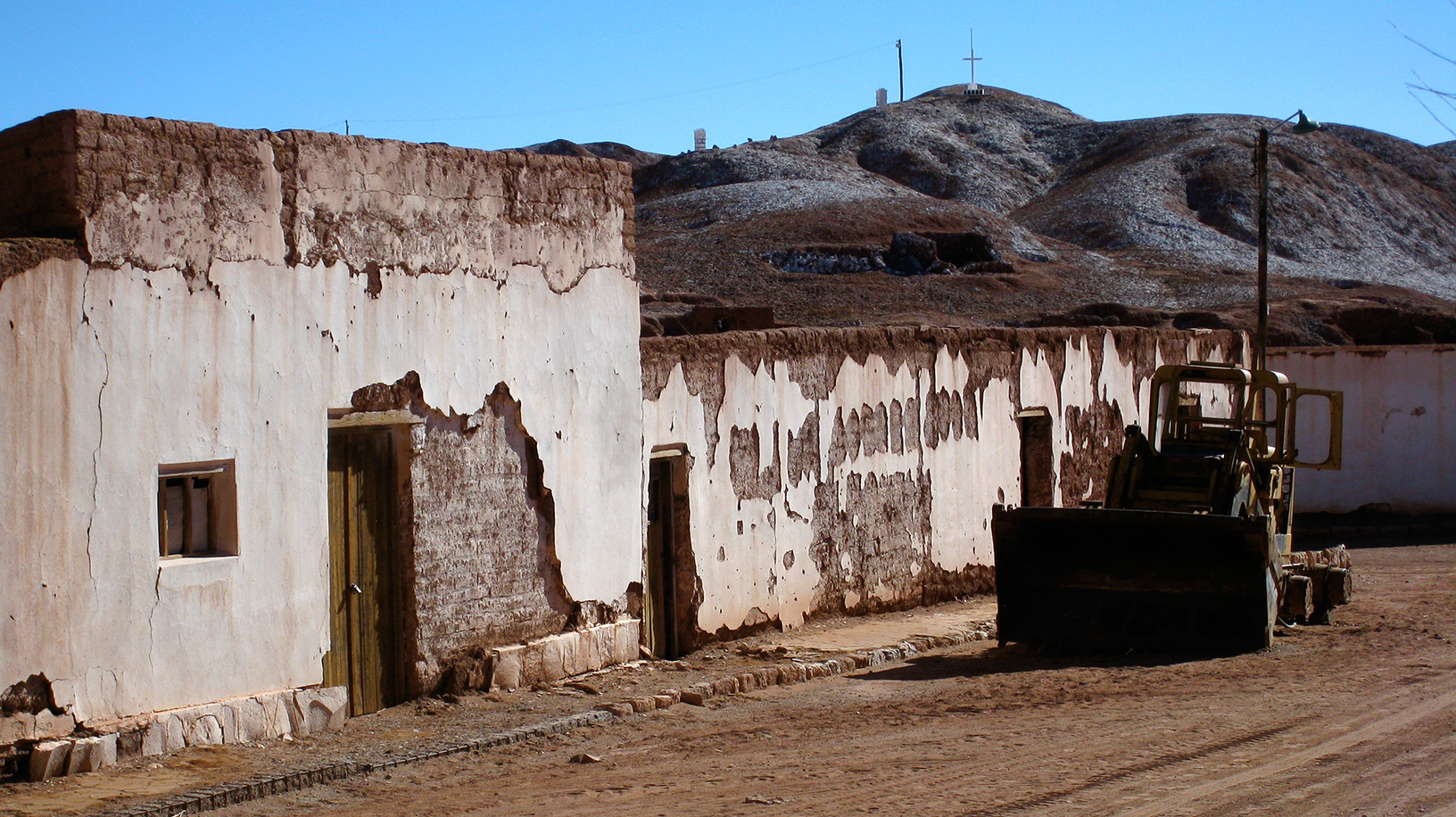
Pope Francis says, “In South America, my homeland, I see many forests, which have been stripped ... that becomes land that cannot be cultivated, that cannot give life.” Much of the deforestation in Argentina is to make way for mining. (photo: Alicia Nijdam; Creative Commons Flickr)
CURWOOD: Pope Francis focused on resource depletion in his most recent public comments on the environment. Why do you think he’s so interested in this?
PEPPARD: So on the one hand I think Pope Francis is familiar with how environmental degradation and the difficulties faced by people living in poverty intersect, and I think that probably comes from his experience witnessing communities where resource extraction is very heavy, where mining is incentivized, and yet there are negative effects, the cost of which, both economic and otherwise, are often foisted onto local communities who may or may not have access to channels of power to advocate for themselves.
I think another source has to do with what we might call a theological orientation, that the created world is good in and of itself, it is not here merely for human use or for economic gain. Are these extractive—we’ll just called them extractive excesses—are they depleting a world that the Catholic Church understands God to have created as good? So is that then not just a sin, using Pope Francis’ language, is that not just a sin against fellow humans, but also perhaps a sin against God, and the integrity of the created order—the natural order? And so the question then becomes, how do we conduct our economic and our social and political activities in a way that respects the needs of equity of people around the world, but also respects the fact that creation, that is the environment, has a value beyond what we humans try to get out of it?
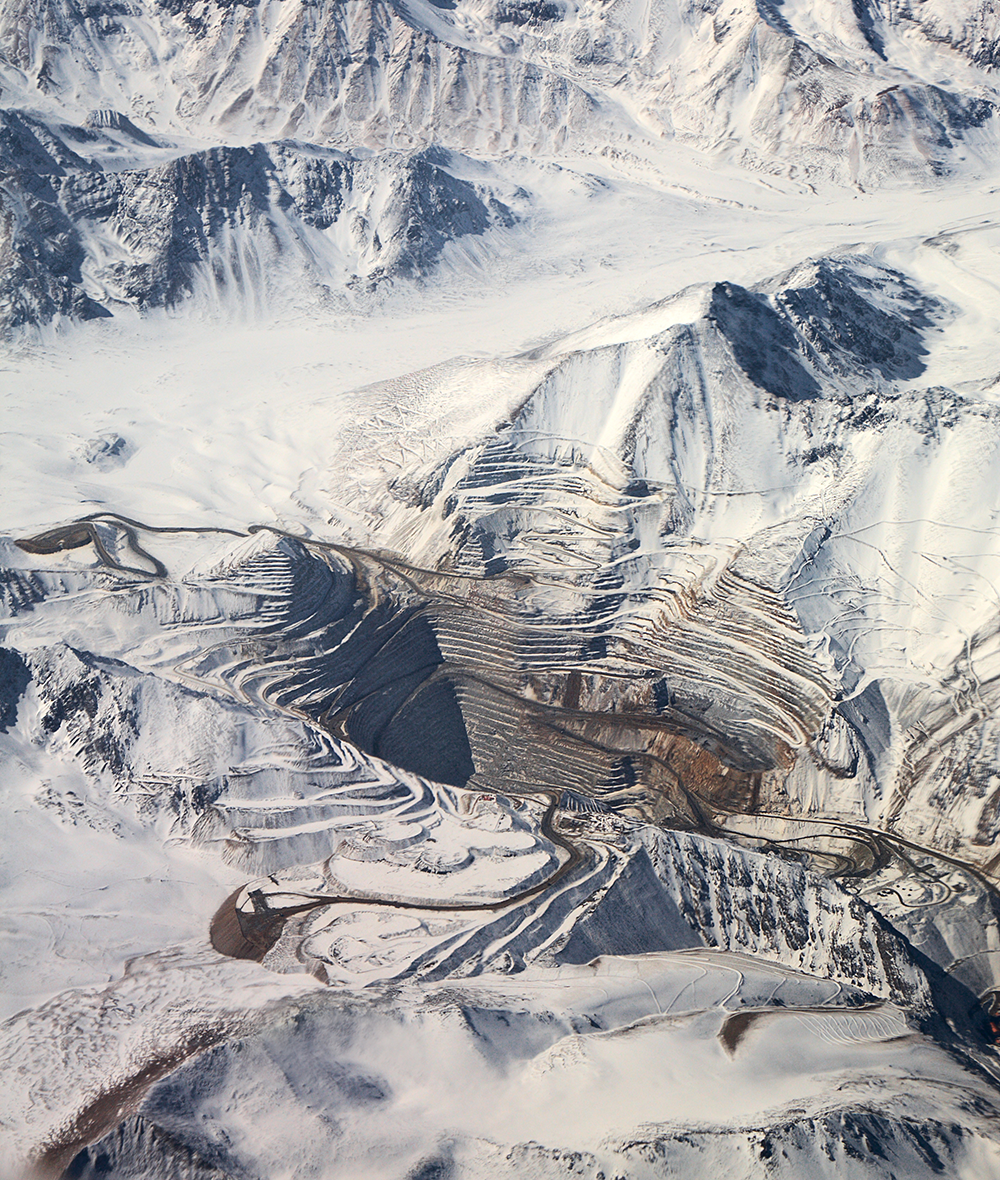
Open pit copper mines, like this one in Chile, have been banned in Argentina since 2007 due to concerns about toxic waste. Lifts of this ban have been considered after suspension of some large mining projects. (Photo: Nataliya Hora/Bigstock.com)
CURWOOD: By the way, in the past what has the Vatican done in terms of using its weight regarding environmental issues to get policy results?
PEPPARD: While the Church may not be an expert in matters of policy, it is an expert in matters of humanity. The Vatican is not a policy-advocating arm, but at the same time, I think the Vatican has really started to throw its weight behind initiatives that can be seen to have global human relevance, and this tends to happen at the United Nations. I think the biggest example is actually with regard to the human right to freshwater.
In 2010, the UN General Assembly passed a convention on the right to freshwater. The Catholic Church was strongly in support of this and has indicated its support in a range of documents. In a number of those documents it makes absolutely clear that there needs to be a fundamental human right to freshwater, that it should be enacted through the United Nations, and that, in fact, access to freshwater is not just some sort of convenience issue, but is actually fundamental right-to-life issue. And that's really strong language for an organization that, at least in the United States, tends to be associated with, again, shall we say reproductive or pelvic issues. If we think of freshwater or environmental goods like clean air, clean environments, as right-to-life issues, wow, that radically reframes our sense of morality and global ethics in the 21st century.
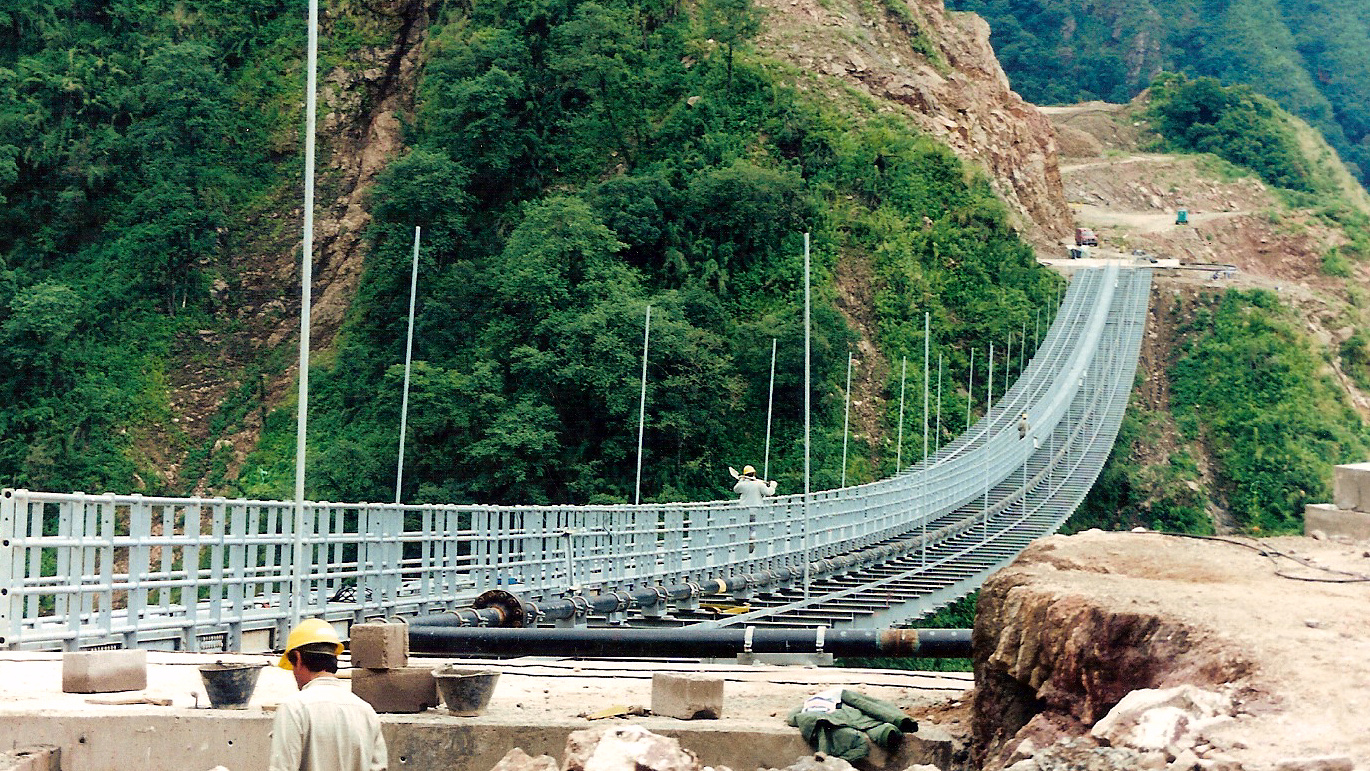
A pipe bridge in the Andes transports resources for a mining project. (Photo: Mariano Mantel; Creative Commons Flickr)
CURWOOD: To what extent do you think the upcoming intense round of climate negotiations worldwide influenced him to say, “It's time for me to do an encyclical about this.”
PEPPARD: What I do know is that the release of this encyclical is currently scheduled to be timed relatively concurrent with some of those big meetings and negotiations, and hopefully an eventual final report and agreement. Partly I think Francis is following up on a trajectory that has been established before him. I think it's noteworthy that the Vatican has an advisory council called the Pontifical Academy of Sciences and on that council sit many, many esteemed scientists many of whom are not Catholic, including an atmospheric chemist who won the Nobel prize for his work in atmospheric chemistry and the greenhouse effect, and it was he, this man is named Paul Crutzen, who coined the term “Anthropocene,” that is the geological era in which humans are shaping Earth systems in ways never before seen and that have long-lasting impacts.
CURWOOD: By the way the Pope is of course, head of the Catholic Church, but he’s also head of state at the Vatican...
PEPPARD: He is indeed.
CURWOOD: …and the Vatican is only an observer in climate negotiations. What sense do you have that the Pope might decide to actually join the UN Framework Convention on Climate Change?
PEPPARD: I think it would be it is fantastically interesting if the Pope were to join the Framework Convention. I think that that would be a moral statement with actions as well as words. This can be a really interesting moment for the Pope and the Vatican to figure out how they want to engage on what many folks have called the most pressing moral issue of our time, and the one that will impact future generations irrevocably. This is a very acutely important moment in terms of thinking about the global common good, not just about nationalities, but about what it means to be human on a changing planet, and what role we bear that.
CURWOOD: Christiana Peppard is an Assistant Professor of Theology, Science and Ethics at Fordham University. Thanks so much for taking the time with me today.
PEPPARD: Thank you for having me. It’s a pleasure.
Links
Read more of the Pope’s speech from Radio Vaticana
Visit Christiana Peppard’s page to read more about her work and Just Water
Listen to “End of an Epoch” to learn more about the Anthropocene
Living on Earth wants to hear from you!
Living on Earth
62 Calef Highway, Suite 212
Lee, NH 03861
Telephone: 617-287-4121
E-mail: comments@loe.org
Newsletter [Click here]
Donate to Living on Earth!
Living on Earth is an independent media program and relies entirely on contributions from listeners and institutions supporting public service. Please donate now to preserve an independent environmental voice.
NewsletterLiving on Earth offers a weekly delivery of the show's rundown to your mailbox. Sign up for our newsletter today!
 Sailors For The Sea: Be the change you want to sea.
Sailors For The Sea: Be the change you want to sea.
 The Grantham Foundation for the Protection of the Environment: Committed to protecting and improving the health of the global environment.
The Grantham Foundation for the Protection of the Environment: Committed to protecting and improving the health of the global environment.
 Contribute to Living on Earth and receive, as our gift to you, an archival print of one of Mark Seth Lender's extraordinary wildlife photographs. Follow the link to see Mark's current collection of photographs.
Contribute to Living on Earth and receive, as our gift to you, an archival print of one of Mark Seth Lender's extraordinary wildlife photographs. Follow the link to see Mark's current collection of photographs.
 Buy a signed copy of Mark Seth Lender's book Smeagull the Seagull & support Living on Earth
Buy a signed copy of Mark Seth Lender's book Smeagull the Seagull & support Living on Earth

